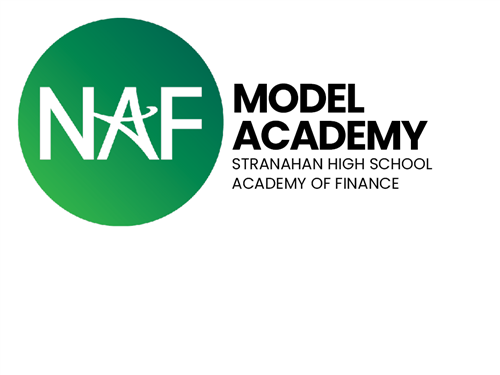- Stranahan High School
- NAF Academy of Finance
NAF Academy
Page Navigation
-

NAF’s Academy of Finance connects high school students with the world of financial services,offering a curriculum that covers entrepreneurship, banking and credit, financial planning, international finance, securities, insurance, accounting, and economics, among other topics.
Curriculum
The AOF curriculum is vetted by partners in the financial services and business sectors, and emphasizes literacy and project-based learning to engage students. AOF students begin with Business Communication and Technology to gain a broad understanding of the core concepts needed in this field. Teachers also have access to NFTE’s entrepreneurship curriculum and Virtual Enterprises International (VEI). AOF graduates benefit from learning the critical concepts of business management, accounting, and ethics. NAF students will have completed at least four NAF courses by graduation.- Business Communication and Technology
- Accounting Applications 1 (VEI)
- Economics and Financial Services (VEI)
- Personal Finance (VEI)
Virtual Enterprises International (VEI)
Virtual Enterprises International (VEI) is an in-school entrepreneurship program and global business simulation that draws on the European tradition of apprenticeships, transforming students into business professionals with an entrepreneurial mindset by bringing the workplace into the classroom. Students learn about business by doing business with coaching from industry professionals. Open to all students, VEI empowers and motivates participants to develop a range of academic, business, technology and professional skills that prepare them for success in post-secondary education, employment and the community.The VEI approach emphasizes learning in four key areas: 1. Ownership: Students take responsibility for their own learning. 2. Experiential: Students’ learning is authentic and realistic. 3. Cooperative: Students learn with and from others and understand the dynamics of working as part of a team. 4. Reflective: Students experience the consequences of their decisions and apply that learning to future challenges.
College and Career Readiness
In addition to studying career-focused curriculum and working on collaborative projects, AOF students gain critical career knowledge through a series of work-based learning activities both inside and outside of the classroom. These activities include job shadowing, mock interviews, résumé writing workshops, culminating with a paid internship. Local business partners work with educators to provide these opportunities. By serving on advisory boards and as mentors, business partners make the important real world connection for students, helping them understand the connection between their education and future success.
NAFTrack Certification
NAF’s student certification assessment system validates successful course completion, projects, and internships. By receiving a passing score on end-of-course exams and satisfactory scores on culminating project and internship assessments, students earn NAFTrack Certification, signifying to postsecondary institutions and employers that they are both college and career ready. With this credential, graduates can benefit from NAFTrack Certified Hiring, a commitment made by several of America’s top companies to give special consideration to qualified college students and eventual job applicants. Graduates of NAF academies complete college faster, earn more, and have stronger ties to their communities than their peers. NAF’s 97% senior graduation rate is a testament to this effort. The Bureau of Labor Statistics states the median annual wage for business and financial occupations was $66,530, which was higher than the median annual wage for all occupations of $37,040.

